
How to improve your complexion
Fancy, expensive products, and drastic lifestyle changes are actually not necessary to see a timely improvement in your skin. In fact, if you follow these tips from dermatologists, you could see positive changes in your complexion in just one day.
Drink up
Do yourself (and your skin) a favor and chug some H2O. When skin is hydrated, it looks fuller, smoother, and healthier, because it’s being plumped from within. And according to board-certified dermatologist Jody Levine, MD, water may also decrease your acne breakouts by lowering the concentration of oil on your skin. (If you want to treat your taste buds, try flavoring your water with lemon which has tons of health benefits.)
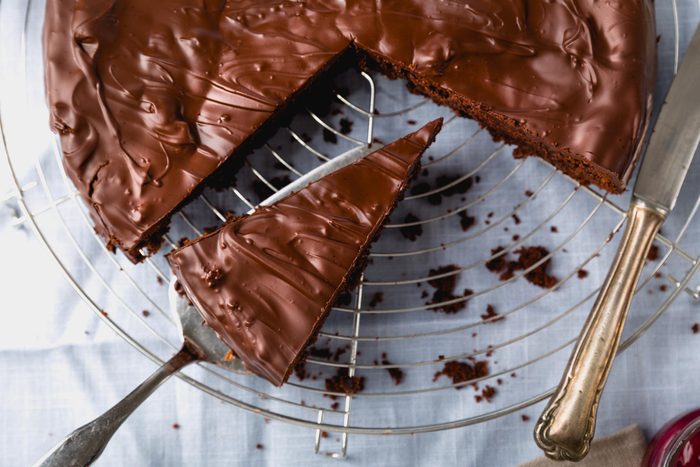
Skip the sweets
A healthy diet is a must—and that means limiting your sugar intake. “Processed sugar glycates the collagen, which stiffens and ages it,” says board-certified dermatologist Debra Jaliman, MD. “It’s best to eat a lot of fruits and vegetables with a high concentration of vitamins, minerals, and antioxidants. Find out the 30 healthiest foods you should be eating for skin and total-body health.
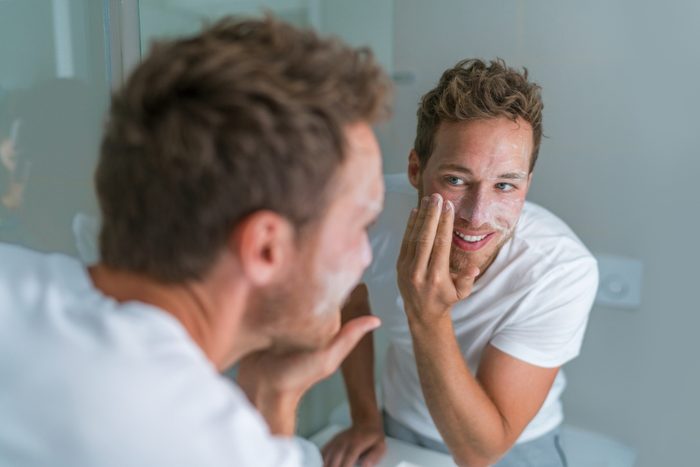
Exfoliate regularly
If you do one single thing to get brighter, clearer skin, you should exfoliate. Exfoliation promotes cell turnover, unclogs pores, and helps skin look more radiant. Try a gentle daily scrub or a chemical exfoliant, such as glycolic acid. Different skin types will react differently. For sensitive skin, you may want to exfoliate less often, whereas oily complexions will do better with more frequent exfoliation. Talk to your dermatologist to determine which formulas are right for you and how often you should exfoliate your face. (Do you know the many skin care benefits of sulfur? Hint: One is exfoliating.)
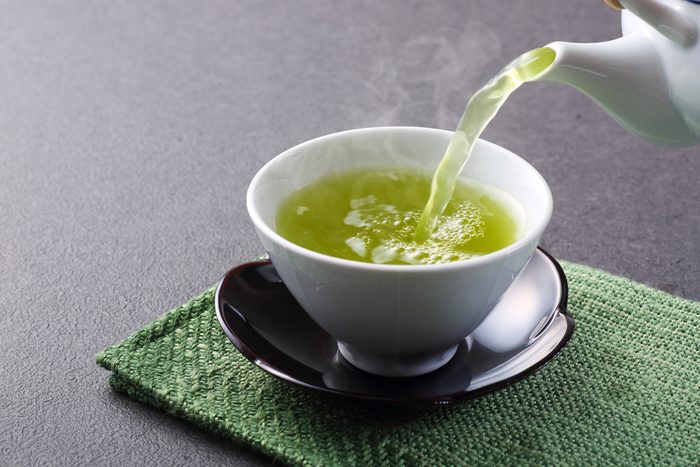
Drink green tea
“The polyphenols in green tea are wonderful antioxidants, which fight oxidative damage to your skin (from free radicals in your environment),” says Dr. Levine. And due to its anti-inflammatory property, green tea can actually help reduce redness, blotchiness, and irritated skin.
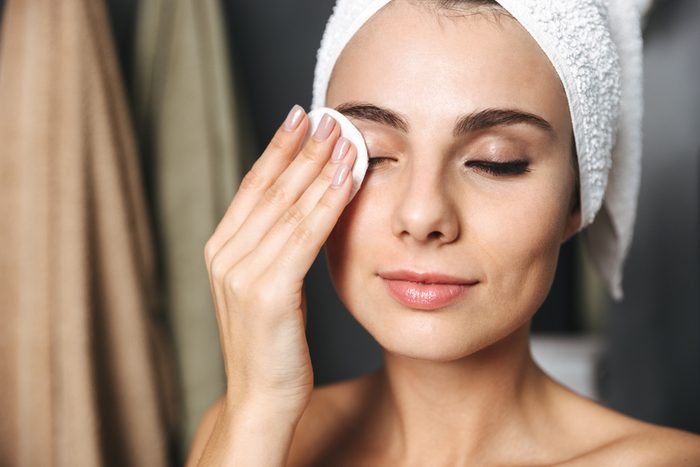
Remove makeup
Every dermatologist on Earth will tell you that sleeping in your makeup is a no-no because it can clog pores and lead to dullness and inflammation. Simply put, wash your face! There’s literally no excuse not to take off your makeup. For those nights when you’re too exhausted to go through your regular cleansing routine, stash a pack of makeup removing wipes—like Neutrogena Makeup Removing Wipes or Babo Botanicals 3-in-1 Hydrating Face, Hands & Body Wipes—on your nightstand. (Don’t make these face-washing mistakes that could dull your skin.)
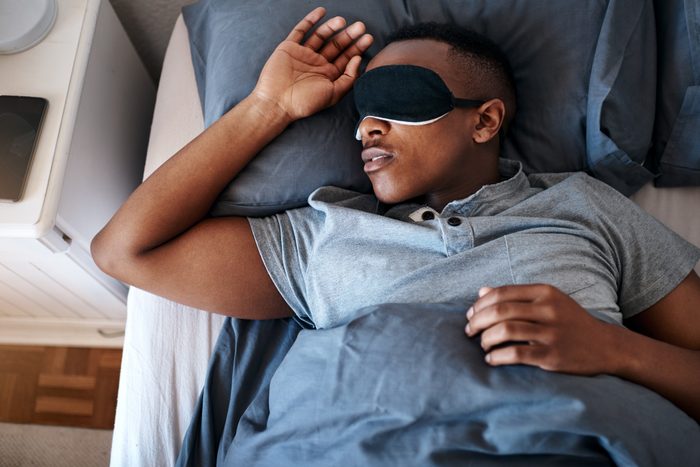
Catch some sleep
There’s something to be said for beauty sleep. Without it, skin can look dull, according to Dr. Jaliman, who recommends sleeping at least seven to eight hours each night. “Skin rejuvenates and repairs itself while you sleep. That’s what gives it that glow,” she says. Consider these other nighttime habits of people with great skin.
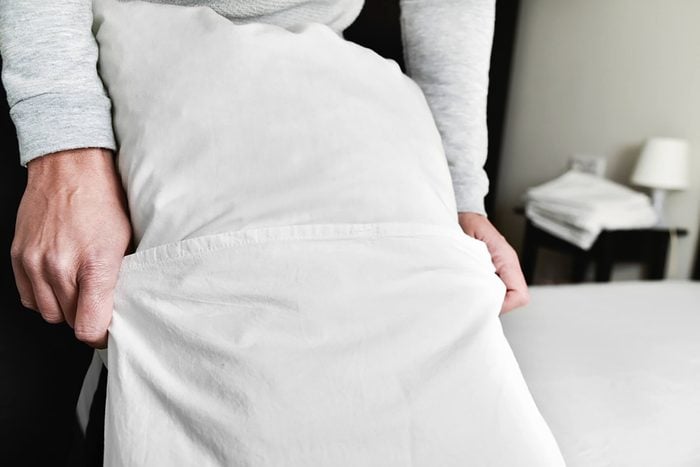
Change your pillowcase
Dr. Levine recommends sleeping on a silk pillowcase rather than a cotton one. Silk causes less friction against your skin, so it’ll feel better and help prevent the telltale wrinkles that reveal which side you typically sleep on. Plus, you won’t wake up with lines on your face. These are the best bed sheets for people with sensitive skin.
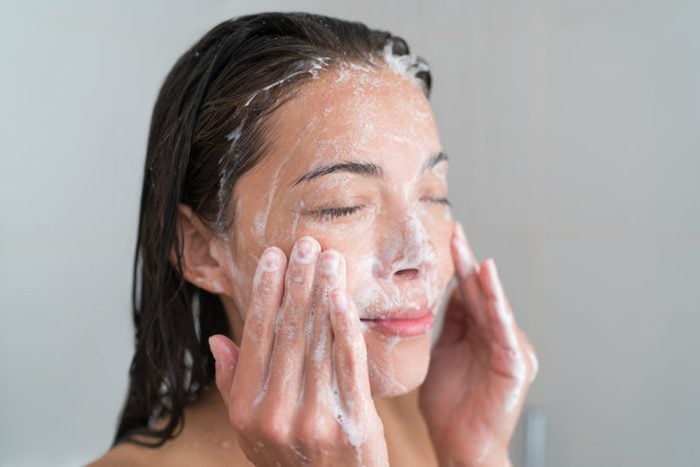
Use a gentle cleanser
Dr. Jaliman recommends looking for a mild formula with glycerin and ceramides. “Sea Radiance Gentle Cleanser is one of my favorites,” she says. “It doesn’t strip the skin of its natural oils and actually adds more moisture from aloe, glycerin, and ceramides. It also has the anti-inflammatory agent arnica, so it’s soothing and actually minimizes redness.” (Want more advice? Here’s the best face wash for your skin type.)
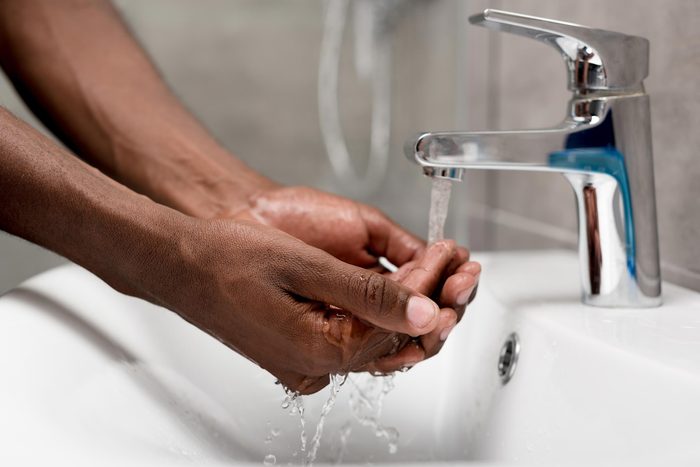
Cleanse smarter
If you start to think about the germy things you touch in a day—from grocery carts to your own cell phone—it can be pretty gross. If you come home and immediately start washing your face, your intentions may be good, but the results won’t be. Bacteria on your hands leads to bacteria on your skin. So especially during these times—with Covid-19 infections rising—make sure to clean your hands thoroughly (including under your fingernails) before going anywhere near your face. Alternatively, you can use a washcloth. Dr. Jaliman recommends a baby washcloth because it’s very soft and gentle. (Just make sure to use a clean one each time.)
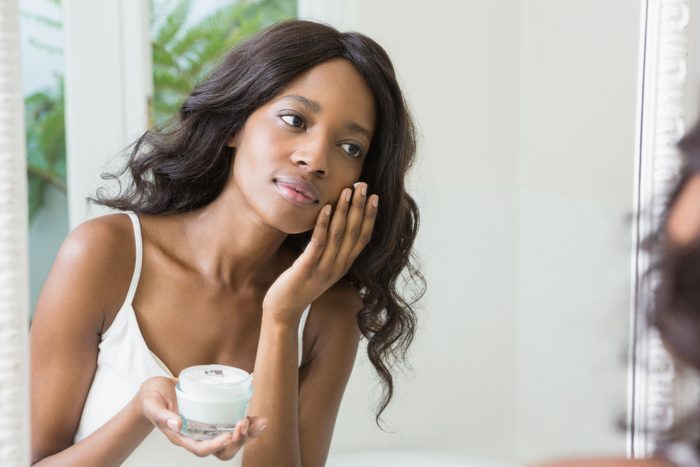
Make sure to moisturize
Moisturizing your skin is a must! Healthy hydrated skin looks and feels young and supple, while dehydrated skin looks sallow and dry. And for those with acne-prone skin, missing moisturizer actually can make breakouts worse! When skin is dry, it’s unable to perform its natural process of shedding. So the dead skin sits atop your healthy skin, leading to clogged pores and blemishes.
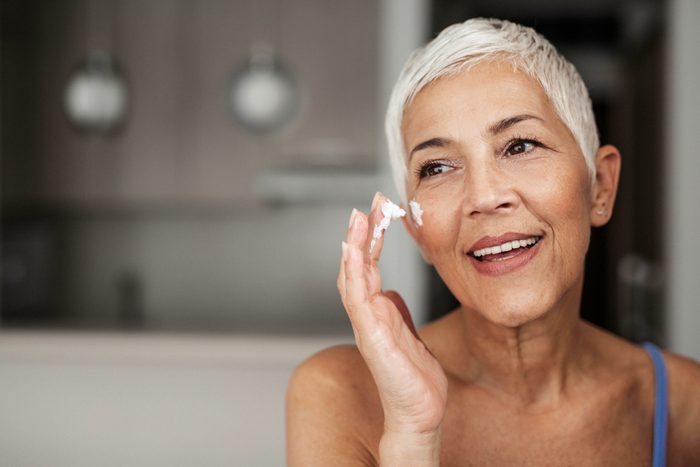
Wear sunscreen, even indoors
The sun’s rays can damage skin cells, leading to photoaging—and potentially skin cancer—so it’s important to always protect your skin. “A common mistake that I see patients make is not wearing sunscreen properly,” says Dr. Levine. “It’s very important to apply it before you are exposed to the sun and to reapply it every two hours.” And because windows, fluorescent bulbs, and even electronic devices let in UV rays, it’s crucial to protect your skin when indoors as well as outdoors. “The UV rays damage your collagen and elastic tissue and cause wrinkles. People who wear sunscreen religiously tend to look much younger than their actual age,” explains Dr. Jaliman.
Next, check out what the labels on your sunscreen actually mean.

